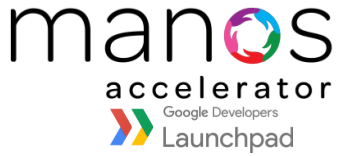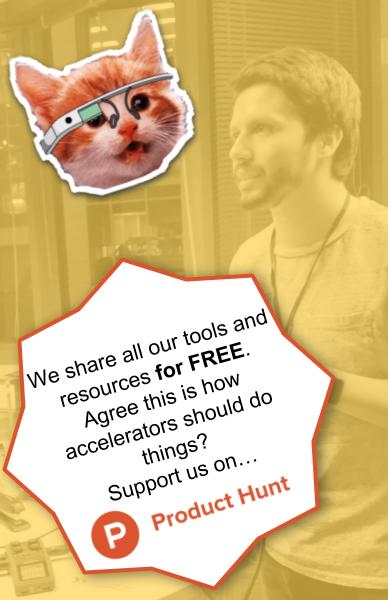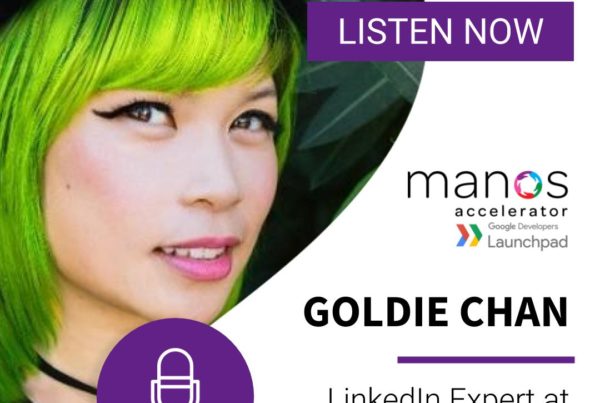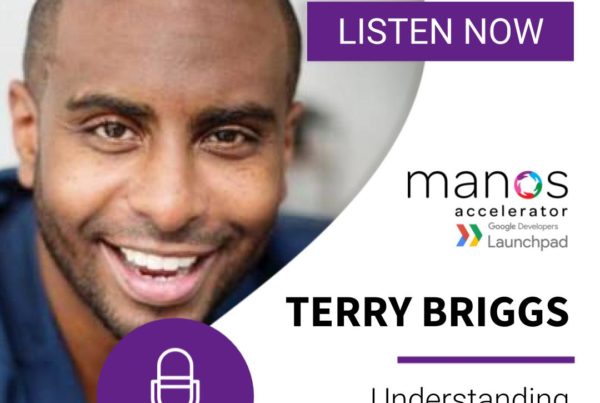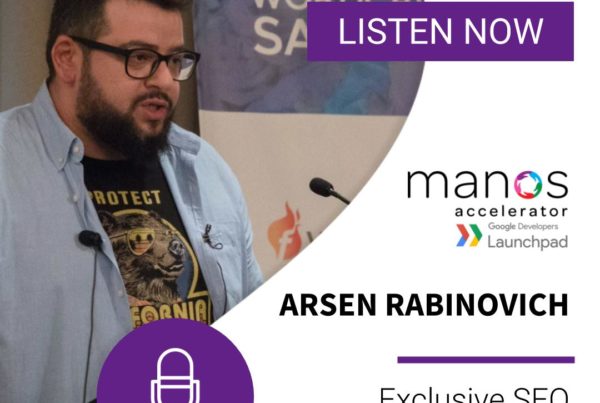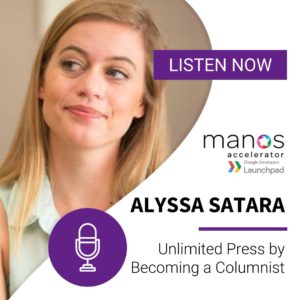 Alyssa Satara is a social innovator with a masters degree focused on human rights. She’s had her work published in HuffPost, HuffPost UK, Inc., Observer, The Independent, and International Business Times.
Alyssa Satara is a social innovator with a masters degree focused on human rights. She’s had her work published in HuffPost, HuffPost UK, Inc., Observer, The Independent, and International Business Times.
Alyssa is known for writing about using technology to address global humanitarian issues, women in tech, millennials in the workplace, self help, and leadership.
SUBSCRIBE
Show Notes
Hello and welcome to another episode of the Manos accelerator podcast. Today I am with…
Alyssa: 00:52 Alyssa Satara. And you’re working on… I’m working on my podcast called “Haven’t said enough.”
Juan: 00:58 Great, so Alyssa, tell us a little bit about your background and how you got here.
Alyssa: 01:03 Uff, I got there in a jumble of things, but in a quick sentence: Quora. I growth hack Quora, so I came here to speak about that and how I’ve been able to build my platform and now my podcast from all of that.
Juan: 01:15 Great, and you’ve seen a lot of press coverage from Quora as well, right? It’s not only your experience in growth hacking Quora itself, but what Quora has done for you in results of getting press at pretty much any big major publication. Right?
Alyssa: 01:29 Definitely. That’s why I loved speaking about it at “Stacking Growth” because I really did stack my growth in this scenario. I got coverage on Quora and because of that, the editors at Quora knew more about me and because of that I was able to stack my clout from there and get a column at Inc and from that stack that and get a podcast.
Juan: 01:49 That’s so amazing and I love that story because a lot of people are always looking for the tactical advice or the shortcut to get press and they would never think about them becoming the press and actually writing their own stories; because if you have your own column at Inc, you can give yourself unlimited press. But people are like: OK, now how do I get someone else to write about me?
And I love that, in your talk, you basically broke down how you can become your own press and get unlimited press for yourself by just being a writer, a contributor to publications through Quora and through showing that you have the consistency, have the right content for those publications. So, so most of our listeners are probably thinking: how do I get press for my startup? How do I get press for my projects that I’m working on? What’s one that specific bit of advice that you can give that you can share with us about doing that?
Alyssa 02:37 Um, I have two main pieces of advice: one is for women writers. Go to Quora. There’s a white space for women writers on Quora. There’s a lot of women missing in that space. Men Too. I don’t mean to say that you guys can’t do it, but women, if you write on there and you write well for two months you’ll. After two months I was published in Inc., I was published in Forbes. I was published in the Observer. I was published in International Business Times – all in in two months. That’s all it took: me writing every day for two months. And sticking to a format of having a picture, having a headline, and then having a few subtitles and writing about quality stuff that I was informed on.
Juan: 03:17 I love that. So, what people don’t understand about Quora. Ok, so how do you actually get press from Quora, and correct me if I’m wrong, but basically there are people that work at Quora, the writing platform, and they have a Quora column in big publications like Forbes, Inc., Huffington Post… There’s an official Quora column at all of these publications.
Alyssa 03:35 There is syndicated partners. So they kind of worked together and because none of it’s paid, you know, it’s like both, both parties are happy. So it’s just like, you know, everyone wins. I win, you win, they win. Like it’s all good.
Juan: 03:49 So, if I worked for Quora and it’s my job to look through the Quora community of answers and find the best content that I can just copy paste inside a Forbes column…
What you’ve been able to do is write, not just for the audience on Quora, but write as if you were already writing that Forbes article because you realize that the people that work at Quora, they’re going to see your content.
They say: “Perfect, I can just copy paste this inside of Forbes. I can copy, paste this inside of Inc”. And that’s kind of a shortcut that most people don’t realize even exists, is by writing on Quora as if you were writing directly in these publications. You’re making their lives easier; the lives of the people whose job is to find content inside of Quora and then copy paste it and the big publications.
Alyssa 04:28 Yeah, when you think about it like that, it makes so much sense, but for me, before I knew this, I was like: “there’s no way it’s that simple” and it really is.
It’s like same concept, dress for the job you want, not the one you have, right? The kind of article you want. Like the publications you want to be in. Not like, I’m writing on Quora and it could be a personal blog, but I’m writing my article, my answers on Quora as if they were articles in Forbes, Inc. and Huffington Post and now I’m published in Forbes, Inc., Huffington Post.
Juan: 04:54 That’s amazing. Do you have any tips about how to structure it? You were touching on it a little bit about how to structure those articles so that they are ready for Forbes and Huffpo?
Alyssa 05:02 Yeah. I mean if if this explanation isn’t enough, look around on Forbes, Inc., and Huffpo and kind of see the format. But you know most articles, there’s an image attached to it that’s semi relevant, there is a headline, a catchy headline that someone wants to read and then there’s like sub titles and – what I like to do – is like: “Five lessons people often learn too late.”
“Three habits you can do today that will drastically improve your life tomorrow.” “Two incredible things that Jeff Bezos as that set him apart from doers and dreamers.” I like putting the number there because I think your audience will see that and be like, I don’t really want to read an article, but they, they see the number and they’re like, well, it’s just three quick things, five things, and it makes it so much more like accessible for them.
Juan: 05:50 What we’ve also learned in my own experience with Quora, and I’ve kind of been dabbling, you know, over the last year with it, is that sometimes actually having a long list is good too. So it’s not even about having a short list or a long list. Lists work really well because it makes it a sizeable thing. Even if you say 99 habits of successful people, people are still gonna open it, save it, bookmark it, send it to their friends. Even if they don’t read it, it’s just like, ok, this is something that we’ll save for later and they’ll never get to it. But um, so that’s been really, really powerful. You know, it’s funny. Um, with, with Quora and press in general, what are some of the results that you’ve been able to drive for yourself? Is it, what’s the value of being in Inc.? Is it a matter of driving a lot of traffic to a website? Is it about driving targeted traffic? So what are we actually reverse engineering there?
Alyssa 06:43 For me, I became, been able to become a thought leader in my field. I’ve come from a humanities background and human rights is like such an amazing field, but you either get like the more lucrative, very bureaucratic side of it or you get the very bureaucratic and less lucrative non-profit side of it. And I was dabbling between both worlds and I’m like, I know what I want to do is help people and I want to expose the issues going on and grow from them as a community. And it was just impossible in the weeds to do it. So writing on Quora, I’ve been able to establish myself as a thought leader in this field and be able to kind of create my own version of what I want to do, my own game, so to speak, of how I want to help and not have to play along with someone else’s rules.
Juan: 07:24 That’s amazing. So to kind of sum it up, basically if you’re listening, you’re thinking about getting press for your startup, for your projects, passion project, you want to help someone. The easiest way to do it is not to just send out a bunch of automated messages to PR people that already are contributors. You can just become a contributor yourself in. The best way to do that is to write on Quora in article form as if you were already writing for the big publications. Something that you said in the talk that really jumped out to me is that, it sounds like there’s really no secret sauce for finding the answers, right? You just jump in.
”Just hit the ground running.
Alyssa SataraColumnist, Inc
Do it.
If it doesn't work, try again.
Alyssa 07:57 Right, just hit the ground running. Do it. If it doesn’t work, try again like they give you stats and you definitely after time can see what works better than others and a lot of the stuff I have done hasn’t worked, but because I do it every day to the best of my ability, every day, more often than not, it is working.
Speaker 1: 08:17 Okay, Manos Nation! Do not forget your chance to win digital goods and resources on every episode right here on the podcast. It’s very simple. You just subscribed to the show on itunes in. Once you’ve done that, message the word “Manos” to m.me/ManosAccelerator. Subscribe on itunes and then message Manos to the website, m.me/ManosAccelerator. See you on the next one.
Juan: 08:44 Alyssa Satara is getting major, major press for all of her projects – anything she wants to work on it. If you want to learn more about Alyssa and her work, what’s the best way to follow you online?
Alyssa 08:53 Um, you can find me at my website, AlyssaSatara.Com. My instagram handle is @alyssasatara, I’m on Inc. as Alyssa Satara, on Quora…
Juan: 09:02 If you guys are looking to replicate this exact model on Quora – I assume your handle is also Alyssa Satara, I assume. Ok, so, uh, find you on Quora, follow your structure, and it sounds like the one takeaway from this is that essentially there is no other secret sauce but just post every single day. If you can, post at least once a day, you can’t binge it. Just post consistently throughout the year. You’re going to start unlocking a lot of big press opportunities and the best part is you’re going to get to write your own stories instead of counting on someone else to do it for you.
Alyssa: One hundred percent.
Juan: That’s amazing. Thank you so much for coming.
Alyssa 09:37 Thank you so much for having me. It’s great to be here.

